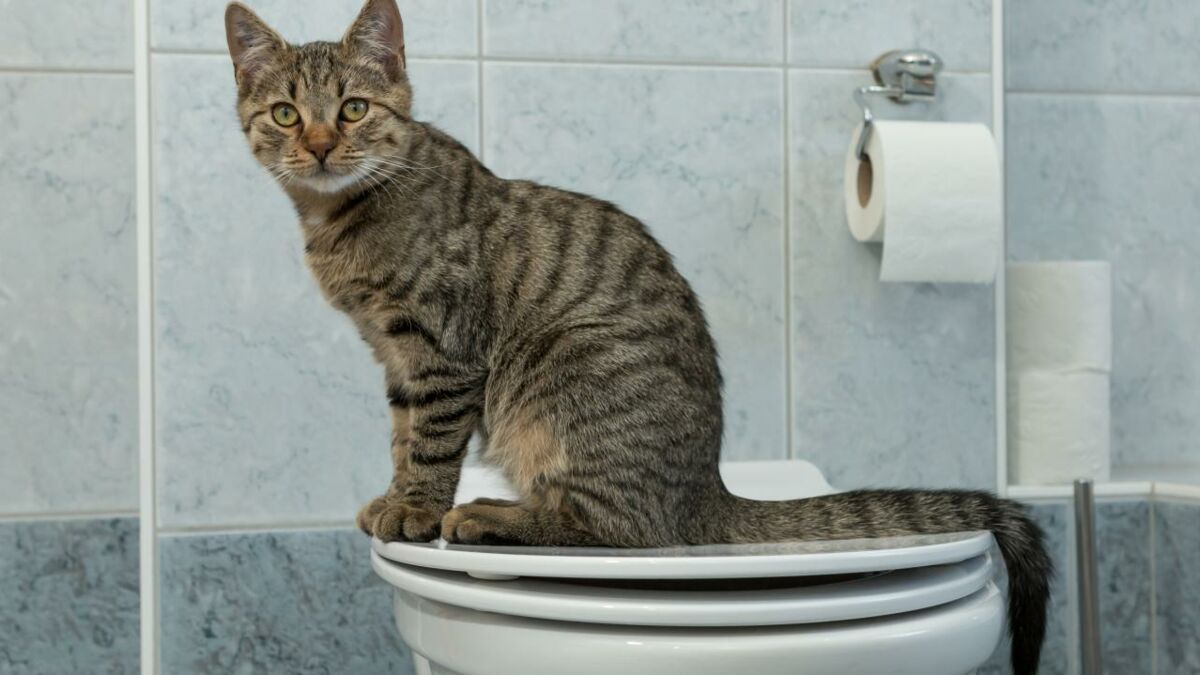Reasons Flushing Cat Poop Down Your Toilet Isn't a Good Idea - Advice for Safer Disposal
Reasons Flushing Cat Poop Down Your Toilet Isn't a Good Idea - Advice for Safer Disposal
Blog Article
This article below about How to Dispose of Cat Poop and Litter Without Plastic Bags is particularly entertaining. Read it for your own benefit and decide what you think about it.

Intro
As cat proprietors, it's important to bear in mind just how we dispose of our feline good friends' waste. While it may seem hassle-free to purge pet cat poop down the bathroom, this technique can have harmful repercussions for both the setting and human wellness.
Alternatives to Flushing
Fortunately, there are much safer and a lot more liable means to dispose of pet cat poop. Think about the adhering to options:
1. Scoop and Dispose in Trash
One of the most usual technique of throwing away pet cat poop is to scoop it right into a naturally degradable bag and throw it in the trash. Be sure to use a specialized trash scoop and dispose of the waste without delay.
2. Use Biodegradable Litter
Choose eco-friendly pet cat litter made from materials such as corn or wheat. These litters are eco-friendly and can be securely taken care of in the garbage.
3. Bury in the Yard
If you have a yard, think about hiding feline waste in an assigned area far from vegetable yards and water resources. Be sure to dig deep enough to prevent contamination of groundwater.
4. Install a Pet Waste Disposal System
Invest in an animal waste disposal system particularly developed for feline waste. These systems use enzymes to break down the waste, decreasing odor and ecological influence.
Health and wellness Risks
Along with environmental problems, flushing cat waste can also posture health and wellness dangers to people. Feline feces might include Toxoplasma gondii, a parasite that can trigger toxoplasmosis-- a possibly serious illness, specifically for pregnant women and individuals with damaged immune systems.
Environmental Impact
Flushing cat poop presents hazardous pathogens and parasites right into the water system, posing a considerable risk to aquatic ecological communities. These contaminants can negatively impact marine life and compromise water high quality.
Verdict
Liable pet ownership prolongs beyond supplying food and sanctuary-- it likewise entails correct waste monitoring. By avoiding purging feline poop down the bathroom and selecting alternate disposal techniques, we can reduce our environmental footprint and protect human wellness.
Why You Should Never Flush Cat Poop Down the Toilet
A rose by any other name might smell as sweet, but not all poop is created equal. Toilets, and our sewage systems, are designed for human excrement, not animal waste. It might seem like it couldn’t hurt to toss cat feces into the loo, but it’s not a good idea to flush cat poop in the toilet.
First and foremost, assuming your cat uses a litter box, any waste is going to have litter on it. And even the smallest amount of litter can wreak havoc on plumbing.
Over time, small amounts build up, filling up your septic system. Most litter sold today is clumping; it is made from a type of clay that hardens when it gets wet. Ever tried to scrape old clumps from the bottom of a litter box? You know just how cement-hard it can get!
Now imagine just a small clump of that stuck in your pipes. A simple de-clogger like Drano isn’t going to cut it. And that means it’s going to cost you big time to fix it.
Parasitic Contamination
Believe it or not, your healthy kitty may be harboring a nasty parasite. Only cats excrete Toxoplasma in their feces. Yet it rarely causes serious health issues in the cats that are infected. Most people will be fine too if infected. Only pregnant women and people with compromised immune systems are at risk. (If you’ve ever heard how women who are expecting are excused from litter cleaning duty, Toxoplasma is why.)
But other animals may have a problem if infected with the parasite. And human water treatment systems aren’t designed to handle it. As a result, the systems don’t remove the parasite before discharging wastewater into local waterways. Fish, shellfish, and other marine life — otters in particular — are susceptible to toxoplasma. If exposed, most will end up with brain damage and many will die.
Depending on the species of fish, they may end up on someone’s fish hook and, ultimately on someone’s dinner plate. If that someone has a chronic illness, they’re at risk.
Skip the Toilet Training
We know there are folks out there who like to toilet train their cats. And we give them props, it takes a lot of work. But thanks to the toxoplasma, it’s not a good idea.

I was introduced to that report about How to Dispose of Cat Poop and Litter Without Plastic Bags from an associate on our other web address. For those who enjoyed reading our article kindly do not forget to pass it around. I treasure reading our article about Can You Flush Cat Poop Down The Toilet?.
Click Here Report this page